An Electronic Batch Record System (EBRS) is a modern way to manage production records without the hassle of paper. It helps companies, especially in industries like pharmaceuticals and biotech, keep their batch records accurate, compliant, and easy to access.
If you’re tired of dealing with mountains of paperwork or worrying about human errors, an EBRS could be a game changer for your production process. Keep reading to see why it might be precisely what your business needs.
What is an Electronic Batch Record System?
At its core, an Electronic Batch Record System (EBRS) is a digital tool that replaces the old-school paper records that track production processes.
It collects, stores, and manages production data electronically, making it easier to ensure accuracy and compliance with industry regulations.
Why is EBRS Important?
Keeping precise batch records in manufacturing is non-negotiable—especially in industries like pharmaceuticals and biotech, where strict regulations apply.
With an EBRS, you ensure compliance with these standards and make your entire process more efficient, reducing errors often accompanying manual paperwork.
Key Benefits of an Electronic Batch Record System
Implementing an EBRS offers numerous advantages to boost efficiency and helps reduce paperwork.
Easier Compliance
Keeping up with regulations like those from the FDA or CGMP can feel like a full-time job. An EBRS takes much of the pressure off by building compliance into the system.
It creates automatic audit trails, tracks everything, and even allows electronic signatures to confirm data accuracy.
Fewer Mistakes and Less Paper
Let’s be honest; no one likes sifting through paper stacks to find errors. With an EBRS, you eliminate the need for manual data entry, which means fewer mistakes.
Plus, you won’t have to deal with paper forms anymore, reducing inefficiencies and making everything run smoother.
Better Data Tracking and Integrity
An EBRS doesn’t just store data—it automatically collects it from your manufacturing equipment, integrates it with other systems like ERP, LIMS, and WMS, and keeps everything organized. This makes tracking data, tracing issues, and ensuring accuracy at every process step easier.
Components of an Electronic Batch Record System
An EBRS has several essential components designed to enhance your production process.
Data Collection and Integration
Forget about manually entering production data. An EBRS collects data directly from your equipment and integrates it with your existing systems, like ERP and LIMS. This keeps everything connected, so you have all the information you need in one place.
Workflow Automation
An EBRS helps create and automate batch instructions and procedures, ensuring consistency in your production process. Automated tasks mean fewer errors and more reliability.
Compliance and Audit Trails
Regulatory compliance is built into an EBRS. The system automatically creates audit trails, ensuring that every step of the process is tracked and documented, making it easy to see who did what and when.
Electronic Signatures and Approvals
Do you need to confirm that your data is accurate? Electronic signatures within an EBRS ensure everything is signed off properly. This adds another layer of accountability and helps you comply with regulations around electronic approvals.
How to Implement an EBRS?
Implementing an EBRS requires careful planning; each step is vital for a smooth transition.
Key Steps to Get Started
Implementing an EBRS involves a few key steps. First, assess your business and regulatory needs. Then, choose the right software that works for your operation. After that, you must migrate your existing data and integrate the EBRS with your current systems.
Challenges You Might Face
Bringing in an EBRS isn’t without its challenges. You’ll need to figure out how to integrate it with your legacy systems, train your staff to use it, and ensure compliance standards are met during and after the transition. But with the right approach, these hurdles are manageable.
Tips for a Smooth Implementation
For a smooth rollout, involve teams from all areas of your business to ensure the system meets everyone’s needs. Continuously monitor the system, validate the data, and provide user-friendly software for your staff.
Why You Should Consider an EBRS
An EBRS It’s a practical solution for modernizing your production records and improving overall efficiency.
Boost Efficiency
With an EBRS, you can speed up the time it takes to review and approve batch records, reducing bottlenecks and improving productivity. It also helps different departments collaborate more efficiently by giving everyone the same real-time data.
More Accurate Data
Since everything is digital, the chances of manual data entry errors drop significantly. Plus, real-time visibility into your data lets you quickly catch and resolve problems.
Save Money
An EBRS helps you cut costs by reducing material waste, minimizing downtime, and eliminating the need for paperwork and storage. Over time, this leads to substantial savings.
Stay Compliant with Ease
Compliance is a big deal in the pharmaceutical, biotech, and food industries. An EBRS’s built-in regulatory features ensure you meet industry standards, simplifying audits and inspections.
EBRS in Different Industries
EBRS systems are widely used in different industries. Each sector benefits from improved traceability, safety, and compliance.
Pharmaceutical and Biotech
In pharma and biotech, an EBRS is essential for tracking complex production processes and ensuring drug safety and efficacy. It helps manage multiple quality checks and guarantees everything is done to the highest standard.
Food and Beverage
An EBRS ensures safety and compliance with food standards in the food and beverage industry. It also helps track ingredient traceability, making it easy to manage batches from start to finish.
Chemical Manufacturing
An EBRS simplifies handling hazardous materials for chemical manufacturers and ensures consistent batch quality. It tracks raw materials and formulation changes, helping maintain safety and quality.
Future Trends in EBRS
The future of EBRS includes systems that are smarter, more flexible, and easier to access from anywhere.
Smarter with AI and Machine Learning
Artificial intelligence (AI) and machine learning are making EBRS even brighter. These technologies can analyze your data to predict process improvements and help with quality control by spotting anomalies before they become more significant issues.
Cloud-Based Solutions
Cloud-based EBRS platforms are becoming more popular due to their flexibility and ease of access. They allow users to collaborate in real-time and access records from anywhere, making them ideal for businesses that need scalability.
Mobile and IoT Integration
The future of EBRS also includes mobile devices and IoT integration. Mobile access means you can approve records on the go, while IoT sensors can collect real-time data from the production floor for more accurate tracking and faster decision-making.
Choose an Electronic Batch Record System for Your Business
At GMP Pros, we’re all about finding more intelligent, better ways to improve your production process. We aim to bring new ideas and efficiencies to the table, helping you stay ahead in a competitive world.
If you’re ready to transform your operations with an EBRS, connect with us, and let’s make it happen!

